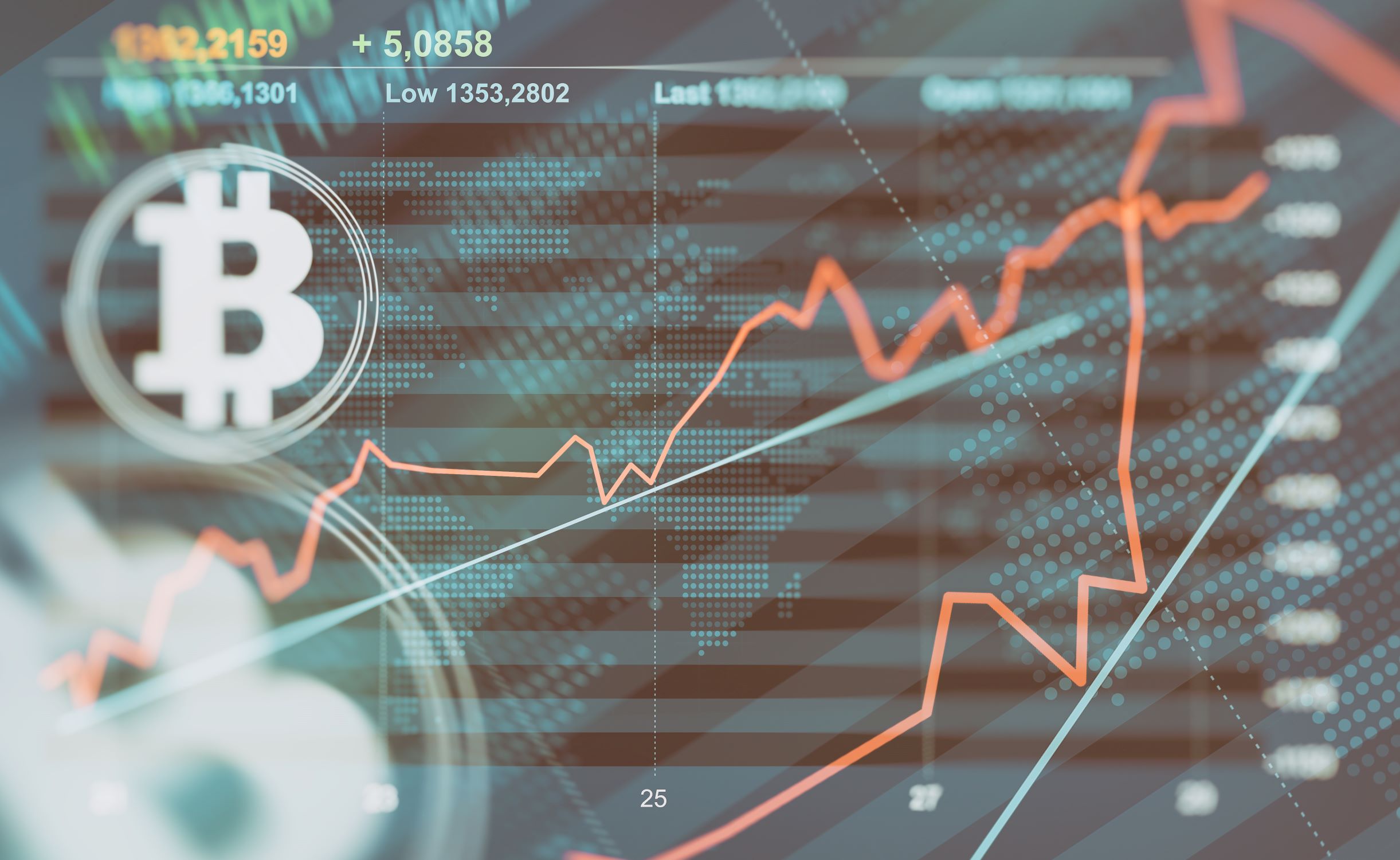In a sweeping display of enforcement, U.S. regulatory agencies intensified their scrutiny of the cryptocurrency sector this October. A series of high-profile actions saw the SEC and DOJ targeting both major crypto market makers like Cumberland DRW LLC and a network of individuals and entities involved in fraudulent practices. The coordinated crackdown underscores the growing urgency among regulators to impose traditional compliance standards in a market long viewed as a “Wild West” for investors. As crypto faces more accountability than ever, industry participants must confront the need for lawful operations or risk severe repercussions.
In October 2024 the U.S. Securities and Exchange Commission (SEC) and the Department of Justice (DOJ) launched a series of enforcement actions to combat fraud and enforce compliance among crypto firms and market participants. The coordinated crackdown revealed a shared commitment among U.S. regulators to address manipulation and non-compliance in the burgeoning cryptocurrency sector. It seems to signal a new phase of intensified oversight and enforcement.
SEC Targets Major Market Maker Cumberland DRW LLC
Among the SEC’s high-profile actions was a charge against Cumberland DRW LLC, one of the industry’s largest crypto market makers. The SEC alleges that Cumberland acted as an unregistered dealer, a violation under the Securities Exchange Act of 1934, for its role in trading significant volumes of digital assets deemed securities. That included tokens such as Polygon (MATIC), Solana (SOL), and Algorand (ALGO). The case marks a significant shift by the SEC. The agency directs its focus from targeting smaller crypto projects to enforcing compliance among larger, established entities. By bringing charges against a major player like Cumberland, the SEC wants to send a clear message: all market participants, regardless of size, must adhere to securities regulations.
DOJ and SEC Collaboration Exposes Widespread Fraud
In a joint DOJ-SEC operation, the agencies further underscored the regulatory push when targeting 18 individuals and companies allegedly involved in fraudulent trading practices. As part of the investigation, the DOJ deployed innovative tactics, including the creation of a fictitious crypto token to reveal deceptive practices such as wash trading – where traders artificially inflate trading volumes to mislead investors about a token’s popularity and value. This collaborative effort led to a wave of charges against entities engaged in fraud. It was a critical step in the DOJ’s and SEC’s efforts to clean up the cryptocurrency market and dismantle fraudulent schemes harming investors.
The operation reflects a rising willingness among U.S. regulators to take assertive action against manipulation tactics, highlighting the DOJ and SEC’s commitment to investor protection and market integrity. By targeting wash trading and other fraudulent schemes, the agencies are working to curb deceptive practices plaguing the market and casting a shadow over legitimate cryptocurrency businesses.
Regulatory Action Extends to DeFi Platforms
The SEC’s enforcement push in October also extended to the decentralized finance (DeFi) sector. Rari Capital, a prominent DeFi platform managing substantial digital assets, faced charges of misleading investors and operating as an unregistered broker. The case concluded in a settlement, with Rari Capital agreeing to rectify its practices. This move underscores the SEC’s commitment to enforcing securities laws within DeFi. The sector has traditionally operated with minimal regulatory oversight. For the SEC, the Rari case signals a broader ambition to bring DeFi platforms into compliance, despite their decentralized nature.
The Larger Implications for the Crypto Industry
October’s enforcement actions reflect an overarching regulatory trend where U.S. agencies take a more unified and aggressive approach to policing the cryptocurrency sector. Casting a wider net, the SEC and DOJ target prominent market players and deceptive schemes across all levels of the market. Their goal is to foster a more transparent and compliant crypto ecosystem.
This regulatory shift brings substantial implications for the industry. As scrutiny intensifies, crypto firms are being urged to assess their operational models. They must adopt compliance measures aligning with securities laws. For market makers and crypto exchanges, this means reevaluating their activities to avoid unregistered trading of assets classified as securities. For DeFi platforms, it highlights the need to navigate the complex legal framework governing the industry. A framework that is evolving rapidly as regulators continue to assert their authority.
A New Era of Accountability
October’s regulatory wave may be a watershed moment for the cryptocurrency market. Did it usher in an era where compliance is no longer optional but essential? The SEC and DOJ are sending strong messages through their recent actions, and the crypto sector is facing pressure. It must transition from an experimental and largely unregulated market into a more mature and accountable financial ecosystem. For some firms, this shift will mean adopting rigorous compliance measures. For others, it could spell an end to business models that rely on regulatory ambiguity.
As enforcement actions ramp up, industry participants must decide whether to embrace this regulatory landscape or face the legal and financial repercussions of non-compliance. Investors, regulators, and the broader public are watching closely. The coming months may reveal whether the industry is ready to adapt or if more regulatory measures are needed to bring it in line with traditional financial standards.
The message from October’s crackdown is clear. The days of regulatory leniency in cryptocurrency may be coming to an end. U.S. agencies are firmly committed to reshaping the market for the benefit of investors and market integrity alike.
Readers’ frequently asked questions
How do these enforcement actions impact regular cryptocurrency investors?
These enforcement actions by the SEC and DOJ are intended to protect regular investors, creating a safer and more transparent market environment. Regulators are cracking down on fraud, manipulation, and unregistered trading to remove bad actors from the market. These efforts target those who might otherwise mislead investors with artificially inflated prices or unsupported claims about a token’s value. Although these actions primarily target large players and fraudulent schemes, the ripple effect reaches all market participants, including individual investors. A cleaner, more regulated market reduces the risks of falling prey to scams or inflated assets. It helps to establish a foundation for long-term investment stability in the sector. However, investors should stay informed about ongoing regulatory developments. More stringent enforcement could also affect the availability and behavior of certain assets in their portfolios.
Could these regulatory actions slow down innovation in the cryptocurrency and DeFi space?
Regulatory enforcement could indeed create challenges for innovation, especially for projects and businesses operating in areas of the cryptocurrency market that are still relatively undefined by law. Companies may need to invest more time and resources into compliance. That could slow down the pace of new product launches and limit experimental initiatives, particularly in DeFi. Some argue that increased regulation could push crypto businesses to operate outside the U.S. or rely on more decentralized, anonymous frameworks to avoid compliance issues. However, proponents of regulation believe that establishing clear rules and a safer environment may ultimately benefit innovation. It would create a stable, predictable framework within which crypto companies can build. This environment could attract more mainstream investors and partners, potentially accelerating the growth and adoption of the technology over time.
Are there signs that other countries will follow the U.S. in enforcing similar regulations on cryptocurrency?
Yes, there are strong indications that other countries are also intensifying their regulatory approach to cryptocurrencies. The U.S. is one of the most prominent and proactive regulators in the crypto space. But other nations, particularly in Europe and Asia, are closely observing its approach and enacting their own measures. The European Union, for instance, is advancing its Markets in Crypto-Assets (MiCA) regulation. MiCA establishes a comprehensive regulatory framework for crypto assets within the EU. Additionally, countries like Japan, Singapore, and Australia are developing or already enforcing regulations targeting crypto exchanges, token offerings, and market manipulation. The global trend toward regulatory action suggests that crypto businesses will need to navigate a complex, multi-jurisdictional landscape as they seek to comply with various national and regional requirements. This growing regulatory focus worldwide further underscores the importance for crypto firms to prioritize compliance and transparency to operate smoothly in multiple markets.
What Is In It For You? Action Items You Might Want to Consider
Reevaluate Your Token Portfolio for Regulatory Risk Exposure
With the SEC increasingly treating certain digital assets as securities, now might be a good time to assess your portfolio. Consider how exposed you are to tokens that regulators may classify as securities like those recently mentioned in SEC enforcement actions. If any of your holdings fall into this category, think about how potential regulatory changes could impact their trading volume or liquidity. Shifting some assets to tokens that are less likely to be classified as securities could be a prudent risk management strategy.
Stay Informed About Crypto Exchanges and Market Makers’ Compliance Status
As the SEC targets large market makers and crypto exchanges, the services you rely on for trading could be affected by regulatory actions. Keep an eye on news regarding any platforms you use, especially if they face scrutiny or sanctions from regulators. Staying informed will help you avoid disruptions in trading, withdrawals, or deposit services and allow you to pivot to alternative platforms if necessary.
Prepare for Potential Volatility in DeFi Assets
With DeFi platforms now firmly on the SEC’s radar, regulatory uncertainty could lead to increased volatility for DeFi tokens. This may be a good time to revisit your trading strategy for these assets. Consider setting tighter stop-loss orders or reevaluating your exposure to DeFi to protect against unexpected price swings. By adopting a more conservative stance in the short term, you can better manage risk while still keeping an eye on new developments in the regulatory landscape.










[…] >>> Read more: SEC and DOJ Crack Down on Crypto Market Makers and Fraud […]